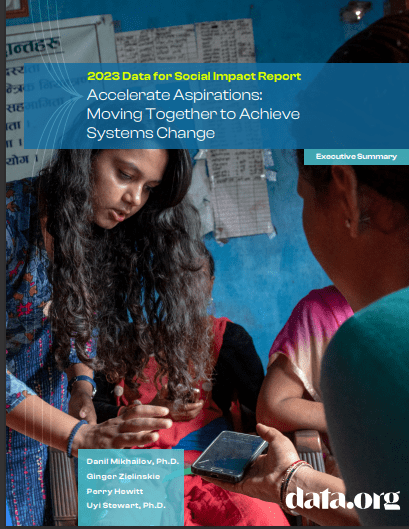Resource information
To solve some of our greatest global challenges we need to accelerate how we use data for good. But to truly make data-driven tools that serve society, we must re-imagine data for social impact more broadly, more inclusively, and in a more
interdisciplinary way.This is easy to talk about, but harder to act on as we work to build a new field of data for social impact.
The field of “data for good” is not only overshadowed by the public conversations about the risks rampant data misuse can pose to civil society, it is also a fractured and disconnected space. There are multiple interpretations of what
it means to “use data for good” or “use AI for good,”—creating duplicate efforts,nonstrategic initiatives, and confusion about what a successfully data-drivensocial sector could look like.
Add to that funding.Resources are scarce for a field that requires expensive tools and skills to thrive.These enduring challenges result in work being done at an activity and project
level, but do not create a coherent set of building blocks to constitute a strong and healthy field that is capable of solving a new class of systems-level problems.The 2023 Data for Social Impact report strives to bring clarity to the conversation
by synthesizing our collective progress to date, outlining key trends and tensionsaffecting social impact efforts, and exploring what comes next as our globalcommunity continues to unlock data to achieve positive social impact.

